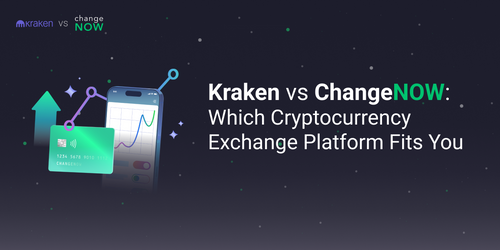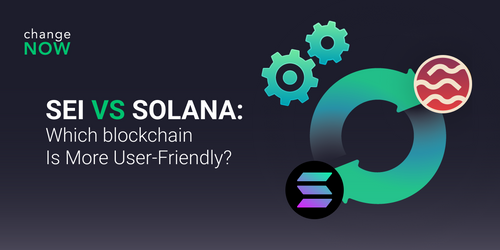Hot vs. Cold Crypto Wallets
Introduction to Cryptocurrency Wallets
Before we dive into the differences between hot and cold wallets, it is important to understand what a crypto wallet is and how it works. A cryptocurrency wallet is a software program that stores private and public keys, allowing users to send, receive, and store digital currencies. Private keys are used to authenticate transactions, while public keys are used to receive funds. In essence, a crypto wallet is like a bank account for digital currencies.
There are several types of crypto wallets, including desktop wallets, mobile wallets, hardware wallets, and paper wallets. Each type of wallet offers different features and levels of security. Hot and cold wallets are two of the most common types of crypto wallets, and they differ in the way they store and access private keys.

Understanding Hot Wallets
A hot wallet is a crypto wallet that is connected to the internet. Hot wallets are typically software wallets that are accessible through a web browser or a mobile app. They are convenient and easy to use, making them a popular choice for users who need quick access to their digital assets. Examples of hot wallets include Coinbase, MyEtherWallet, and Blockchain.info.
Hot wallets store private keys online, making them more vulnerable to hacking attacks and theft. If a hacker gains access to a hot wallet's private keys, they can easily steal the funds stored in the wallet. Therefore, it is essential to take extra security measures when using a hot wallet, such as enabling two-factor authentication, using strong passwords, and avoiding public Wi-Fi networks.
Advantages and Disadvantages of Hot Wallets
One of the main advantages of hot wallets is their convenience. Hot wallets are easy to set up and use, and they allow users to access their digital assets from anywhere with an internet connection. Hot wallets also offer a high level of liquidity, allowing users to quickly buy and sell digital assets.
However, hot wallets are not without their disadvantages. Because hot wallets are connected to the internet, they are more vulnerable to security threats than cold wallets. Hot wallets are also more prone to user error, such as accidentally sending funds to the wrong address or losing private keys.
Understanding Cold Wallets
A cold wallet is a crypto wallet that is not connected to the internet. Cold wallets are typically hardware wallets or paper wallets, and they are used to store large amounts of digital assets for long-term storage. Examples of cold wallets include Trezor, Ledger, and KeepKey.
Cold wallets store private keys offline, making them much more secure than hot wallets. Because they are not connected to the internet, cold wallets are much less vulnerable to hacking attacks and theft. However, cold wallets are not as convenient as hot wallets, and they require more technical knowledge to set up and use.
Advantages and Disadvantages of Cold Wallets
The main advantage of cold wallets is their high level of security. Because they are not connected to the internet, cold wallets are virtually immune to hacking attacks and theft. Cold wallets are also more resistant to user error, such as accidentally sending funds to the wrong address or losing private keys.
However, cold wallets are not without their disadvantages. They are less convenient than hot wallets, and they require more technical knowledge to set up and use. Cold wallets are also less liquid than hot wallets, making it more difficult to quickly buy and sell digital assets.
Hot Wallet vs Cold Wallet: Key Differences
The main difference between hot wallets and cold wallets is the way they store and access private keys. Hot wallets store private keys online, making them more vulnerable to security threats. Cold wallets store private keys offline, making them much more secure. Hot wallets are more convenient and offer a higher level of liquidity, while cold wallets are more secure but less convenient.
It is important to choose the right type of wallet for your needs. If you need quick access to your digital assets and don't plan on storing large amounts of crypto, a hot wallet may be the best option for you. If you are storing large amounts of crypto for long-term storage, a cold wallet is the best option.
NOW Wallet: The Best of Both Worlds?
NOW Wallet, being a hot wallet, offers the convenience of quick access to digital assets, making it ideal for day-to-day transactions. However, it also incorporates a level of security comparable to cold wallets, ensuring that your digital assets remain safe and secure. As a non-custodial cryptocurrency wallet, NOW Wallet does not collect any personal data, ensuring that your information is kept confidential and you're the only one who has access to your funds. Furthermore, all funds are stored directly on your device, providing the ultimate level of privacy and security for your digital assets. This makes it one of the most secure hot wallets available in the market.
Apart from its security features, NOW Wallet also offers a user-friendly interface and a variety of unique features that make it easy to manage and track digital assets. With NOW Wallet, users can easily buy, sell, stake, and exchange cryptocurrencies, as well as view their transaction history and portfolio performance.
Tips for Secure Crypto Storage
Regardless of which type of wallet you choose, there are several best practices you should follow to ensure the security of your digital assets:
- Always use a strong and unique password for your wallet. Never reuse passwords or use easy-to-guess passwords.
- It is essential to enable two-factor authentication whenever possible. Two-factor authentication adds an extra layer of security to your wallet by requiring a second form of verification, such as a code sent to your phone or email.
- Never share your private keys with anyone, and always keep your wallet software up to date. Keeping your wallet software up to date ensures that you have the latest security patches and bug fixes.
Choosing the Right Wallet for Your Needs
Choosing the right wallet for your needs depends on several factors, such as how much crypto you plan on storing, how often you plan on accessing your digital assets, and your level of technical knowledge. If you are new to crypto and only plan on storing small amounts of digital assets, a hot wallet may be the best option for you. If you are an experienced crypto investor and plan on storing large amounts of crypto for long-term storage, a cold wallet is the best option.
The Importance of Secure Crypto Storage
In conclusion, the security of your crypto wallet is essential to the safety of your digital assets. Hot wallets are convenient and offer a high level of liquidity, but they are also more vulnerable to security threats. Cold wallets are more secure but less convenient. NOW Wallet offers the best of both worlds, combining the convenience of a hot wallet with the security of a cold wallet.
Regardless of which type of wallet you choose, always follow best practices for secure crypto storage, such as using a strong password and enabling two-factor authentication. By taking these steps, you can ensure the safety and security of your digital assets.




